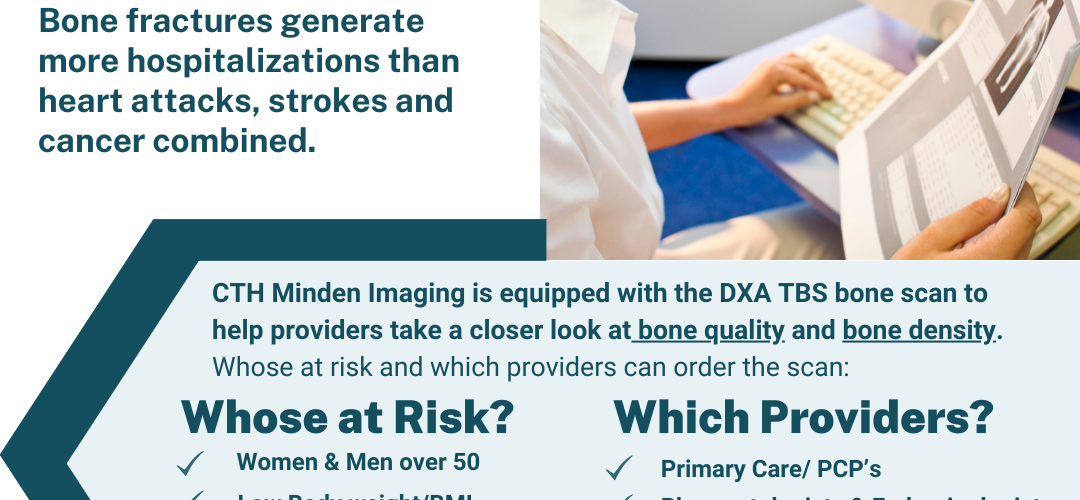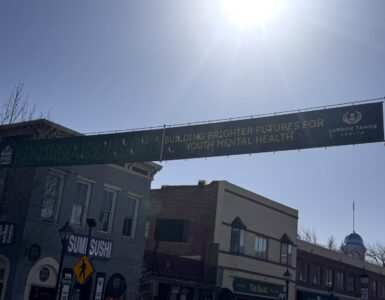In the realm of healthcare, knowledge is power, especially when it comes to our bones. Bone health is often overlooked until a problem arises, making early detection and prevention crucial. One valuable tool in this endeavor is the DXA TBS (Trabecular Bone Score) scan, recommended for individuals at risk of osteoporosis or those with specific risk factors related to bone health.
Who Should Consider a DXA TBS Scan?
- Postmenopausal Women:
Hormonal changes during and after menopause increase the risk of osteoporosis in women. DXA TBS scans can help assess bone health and guide preventive measures. - Men Over 50:
While osteoporosis is more common in women, men can also develop it, especially with advancing age. DXA TBS scans can help detect early signs in men. - Individuals with a Family History of Osteoporosis:
A family history of osteoporosis can be a significant risk factor. DXA TBS scans are valuable in assessing genetic predispositions. - Those with a History of Fractures:
If you’ve experienced fractures or have a history of low-trauma fractures, a DXA TBS scan can provide insights into your bone health. - Long-term Steroid Users:
Certain medications, like corticosteroids, can weaken bones over time. DXA TBS scans can help monitor bone density changes due to medication use. - People with Certain Medical Conditions:
Conditions like rheumatoid arthritis, celiac disease, or hyperthyroidism can increase osteoporosis risk. DXA TBS scans can aid in early detection for those affected. - Individuals with Low Body Weight:
Being underweight or having a low BMI can be a risk factor for osteoporosis. DXA TBS scans can assess bone health in such cases. - Those with Lifestyle Risk Factors:
Unhealthy habits like smoking, excessive alcohol consumption, and a sedentary lifestyle can negatively impact bone health. DXA TBS scans can help evaluate the consequences of these habits.
It’s essential to discuss your individual risk factors with a healthcare provider to determine if a DXA TBS scan is appropriate for you. They can provide guidance on when and how often you should have bone density assessments to monitor your bone health.
Who Should You Talk to About a DXA TBS Scan?
Various healthcare providers play crucial roles in recommending and interpreting DXA TBS scans:
- Primary Care Providers: are often the first point of contact for patients and can assess overall health, identify risk factors, and recommend DXA TBS scans when necessary. Whether it’s your physician, nurse practitioners and physician assistant, Your Primary Care Providers can assist in assessing and managing your bone health, including ordering DXA TBS scans when necessary.
- Rheumatologists: specialize in musculoskeletal conditions, including bone health. They may use DXA TBS scans to monitor bone health in patients with autoimmune disorders like rheumatoid arthritis.
- Endocrinologists: are experts in hormonal imbalances and may recommend DXA TBS scans for patients with hormonal conditions affecting bone density.
- Gynecologists: may consider DXA TBS scans for postmenopausal women or women with specific risk factors related to hormonal changes affecting bone health.
- Orthopedic Surgeons: often treat patients with fractures or musculoskeletal issues. DXA TBS scans can help assess bone quality and inform treatment decisions.
- Family Medicine Practitioners: provide comprehensive care and may recommend DXA TBS scans based on age, gender, medical history, and risk factors.
- Osteoporosis Specialists: Some healthcare providers specialize in osteoporosis care and prevention. They are particularly knowledgeable about bone health assessments, including DXA TBS scans.
Be Proactive in Your Bone Health with a DXA TBS Scan
DXA TBS scans are an essential tool in assessing and monitoring bone health. They empower both patients and healthcare providers with valuable information, allowing for early intervention and prevention. If you have concerns about your bone health or fall into one of the risk categories mentioned, don’t hesitate to discuss DXA TBS scans with your healthcare provider. It’s a proactive step towards maintaining strong and healthy bones.
Providers, for more information please contact Carson Tahoe Imaging at (775) 445-8146. Patients, schedule an appointment with your provider and talk to them about getting a DXA TBS bone scan.







